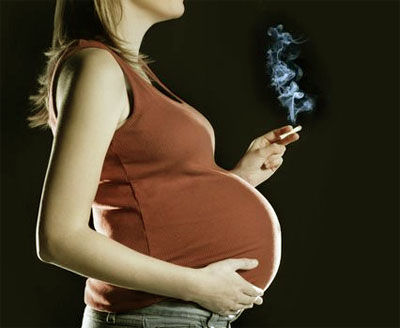Approximately a third of women who many countries smoke continue to smoke regardkess of their pregnancy. Cigarettes could affect immediately mothers’ health, which in turn could severely affect the fetus. The living being in the womb entirely relies on mother for the supply of oxygen and nourishment. The placenta is an important lifeline between baby and mother. When women who are pregnant continue to smoke, some of the oxygen in their blood is substituted by carbon monoxide. As we know carbon monoxide is a highly poisonous gas. It robs brain, muscles and other body tissues of precious oxygen and this can make the infant’s heart to work much harder. So if the baby is badly deprived of oxygen, there is a possibility that it will suffer significantly from its harmful effects. This condition is widely known as hypoxia. In general, effects of hypoxia can happen over an extended period of time. One immediate affect for our babies are their movements inside the womb could begin to slow down and while their heart rate start to speed up as they try to get enough oxygen. There’s a noticeable reduction in baby’s overall movements about thirty minutes after a pregnant mother smokes a single cigarette.

The placenta directly supplies our baby with ample nutrients. A simple act of smoking could increase the chance that our babies will be born much smaller than average. Some women think that a slightly low-weight baby could be seen as an advantage. But, there is plenty of evidences that say the contrary. A smaller baby at birth could continue to become smaller in their physical posture throughout their subsequent development phases. Low-weight babies could also need intensive care and this raise the overall cost.
The placenta also acts as an essential barrier or filter to block certain substances. However, it cannot keep some of the chemicals away and many of them could get through. Carbon monoxide, nicotine and various other chemicals found in tobacco smoke can be passed on our tiny babies. There are about 4000 chemicals detected in cigarettes and about 30 of them are known as carcinogens. Nicotine-derived nitrosaminoketone is considered among the most potent cancer causing substance found in tobacco-based products. It is unfortunately detected in three-quarters newborns with mothers who couldn’t stop smoking during pregnancy. Nicotine can travel through our bloodstream and eventually to the brain. This dangerous substance then is circulated to the rest of our body. Much of nicotine is converted to cotinine by our liver. A higher level of cotinine can cause womb to contract more and in late stages of pregnancy, it could cause mothers to go into labour. Many chemicals will readily transported by mother’s bloodstream and finally find their way into the baby’s blood supply. If mothers smoke while being pregnant, their children could be exposed to nearly the same level of toxicity. It means that once babies is born they may experience symptoms similar to nicotine withdrawal, making it harder to handle them.










Comments are closed.